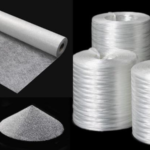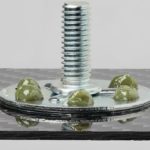The Graphene Council with the collaboration of Composites One and Utah Advanced Materials and Manufacturing Initiative (UAMMI) announced a new graphene enhanced composites comparative testing project. The aim of the project is to provide available trusted and useful data for the general public and in particular for engineers and companies in way to encourage the development of graphene enhanced materials.
Objectives
This project will compare a standard resin system that is commonly used to produce composite parts and that has been enhanced with different forms of graphene. The end result will be the ability to compare untreated resin test parts with those that have had graphene added and to measure changes in a.) tensile and stiffness, b.) flex, c.) impact toughness, d.) compression strength and e.) inter-laminar shear.
The results should give an indication of the efficacy of using different forms of graphene as a nano-additive in composites at various load factors and in different configurations, including non-reinforced and fiber reinforced parts.
This will in turn provide the broader community (as well as participating companies) with independent data regarding potential performance improvements from the use of graphene additives, as well as a comparison of results of different forms of graphene materials.

Approach
The Graphene Council encourage broad participation from graphene producers and formulators, and encourage the submission of a range of graphene materials including functionalized and non-functionalized forms of material.
Partners
The project is at the initiative of The Graphene Council with the full support and collaboration of Composites One, represented by Dr. Jason Gibson, providing their expertise regarding the resin systems used for testing. They also work with the Utah Advanced Materials and Manufacturing Initiative (UAMMI) as the test sample preparation, testing and characterization partners for this project, led by Dr. Brent Strong.
Participation
Any company that produces or that processes graphene materials may participate in the study. Participating companies will be required to pay an administrative fee to cover the cost of the resin, forms, equipment and labor used to prepare and to the test the samples. Fees will also be used to cover the cost of the testing equipment, facilities, laboratory personnel, analysis and report preparation. The Graphene Council and its partners (Composites One and UAMMI) shall use their best efforts in the handling, preparation and testing of materials according to the referenced standards. Participating companies shall hold The Graphene Council and its partners (Composites One and UAMMI) harmless from any claims in connection with this voluntary comparative testing project. Test results, including the final report are expected no later than 90-120 days from the date materials are submitted subject to the availability of testing facilities.
The Graphene Council reserves the right to publish the results of the report so long as the names of the participating companies remain publicly anonymous. The report may be published in part or in whole as new test results are produced.
Graphene
Each participating company will provide 50grams of the type of graphene material that they wish to have tested as part of the project. Companies may submit more than one type of graphene in which case 50grams will be required for each type of material submitted.
Samples must be prepared in an airtight, break resistant container that is properly packaged and clearly labeled for transport. Samples must include a Material Specification Sheet as well as a Safety Data Sheet.
Conclusion
The purpose of this testing project is to provide publicly available data regarding the impact of different forms of graphene for use in at least one form of resin and different composite forms.
The Graphene Council believes these results will be of value to the general public that is interested in the potential use of graphene enhanced composites. It appreciates that this test project is looking at just one form of resin system but hope that it stimulates greater interest and testing of graphene across a broad range of composite resin systems.
The Graphene Council also believe that the results of this testing project will be of considerable interest for the participating companies. They will receive 3rd party, independent testing of their material in different composites formats and at the same time, have the ability to do a head to head comparison against other forms and types of graphene (without knowing the identity of the other companies involved).
Commercial adoption of a new material like graphene is a journey. The Graphene Council hopes that this testing project is an important step on that journey by providing trusted data for engineers and other material specifiers that are looking at graphene enhanced materials.
For more information: The Graphene Council













